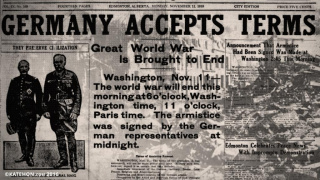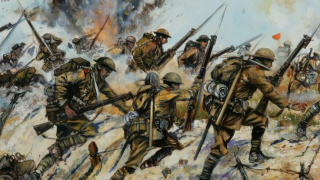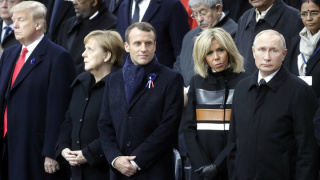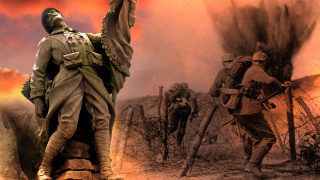World War I: The Divide of Civilization
The next anniversary of the outbreak of the First World War makes us once again think that it has torn the history of mankind in two ...
Because after the First World War, everything was possible. After it became possible to do everything that was going on in the Second World War. Which, in fact, only in the historical tradition - the second. In fact, it was just a continuation of the first after a 20-year truce, because it set itself the same tasks as the first.
At the heart of the war is self-confidence on all sides
Everyone knows the story. Let's go straight to the conclusions. As for the causes of the war, and its outcome. And the conclusion, in general, is simple to indecency: self-confidence.
Austria-Hungary, which started the war, was sure that it would irritate the weak Serbia. And if for that Russia intervenes - the elder sister Germany will help.
Germany was sure that she would keep Russia in the east while solving the problem of France. The Kaiser did not care much about the union of the latter with Britain: from London he received enough signals that Britain would not enter the war, despite the Anglo-Russian-French alliance.
France was confident that the Germans would not overcome its fortifications. In Paris, somehow nobody believed in the fact that the "Teutons" would ignore the neutrality of third countries and would strike through Belgium.
Russia was confident that the "steamroller" of its armed forces would simply roll Germany into a delicate pancake. Not to mention Austria-Hungary. Which, in general, really rolled out pretty quickly and skillfully. But the victorious picture was spoiled by Germany, which it was not possible to straighten out as easily and graphically.
Finally, England was confident that the "steamroller" of Russia would unleash Germany very soon, and London would only have to enjoy the repetition of the situation of 1812, when the Russians humiliated and torn the army of Napoleon.
Serbia was confident that Russia would have time to defend it. The motives of Turkey to join the alliance with Germany are foggy. Japan, always greedy, believed that under the noise will seize all the German colonies in China. Italy hesitated for a long time, but then also was assured that with impunity it would chop off from Austria a couple of valleys in the Alps ...
In general, everyone was confident in themselves. And so they believed that in a maximum of three months the war would end with a great victory for their country.
Fatal solution
It is curious that today the situation is similar. No, not in the sense of the same "parade of countries." Germany is now not the same, and its armed forces can be crushed even by Poland. England - helpless. France, Italy - also so-so warriors in the current conditions. On the common place of all these countries today is America, which is really a real force.
And, nevertheless, international relations are again lined up in approximately the same configuration. Russia has good economic and even psychological relations with Germany. But Germany leads anti-Russian hysteria. And it does this for the sake of the unnecessary and vanishing Austro-Hungary - today Ukraine is in its place. And that breaks from the bridle in order to pick up a colony under its own small level - then Serbia, now the Donbas.
In history, trends are repeated. And circumstances. In any case, England again, as then, hid: but no one knows until the end whether it will act at all, and on whose side. In any case, recently international observers have noted the diminished frenzy of London in relation to Russia.
The First World War was a tragedy of a global scale that took millions of lives, leading to huge economic losses and radically reshaping the European political landscape.




